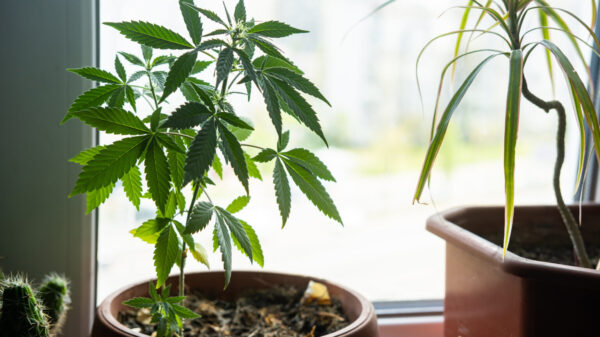A surge in enthusiasm for ibogaine — a psychedelic made from the bark of the Tabernanthe iboga plant — as an effective treatment for substance use issues led to a wave of clinics opening across Canada a few years back.
But the clinics have since shuttered amid debate around iboga’s safety and legal status, which remains a contentious topic in the country.
While people keen to experience the African plant’s promise of healing have flocked to other countries in recent years, instances of Canada’s health regulator directing companies to pursue clinical trials suggest it could be changing its tune yet again, in the context of granting legal access to psilocybin and a worsening overdose crisis.
Ibogaine is a powerful treatment for substance use issues. One study from The American Journal of Drug and Alcohol Abuse shows 14 people struggling with opioid dependence stopping or significantly reducing their drug use after a year. Nevertheless, partially due to its potential cardiotoxic effects, ibogaine is illegal in many parts of the world including the U.S. The bulk of clinics in are set up in less restrictive countries including Mexico, Costa Rica and Portugal.
Canada, known worldwide for its progressive policies around weed and psychedelics, has historically been a place that’s allowed ibogaine while other countries banned it.
Ibogaine was unregulated in Canada until 2017. But during that year, the government began to clamp down on after several reports of adverse reactions, including an incident at a clinic called Liberty Root, where somebody forged an electrocardiogram. EKGs are taken to ensure a patient doesn’t have any heart conditions, as iboga’s effect of lowering heart rate can be dangerous if someone has a pre-existing condition. The man ended up in a coma for a week and spent six weeks in hospital, although he recovered after that.
Soon after, federal regulator Health Canada added ibogaine to the Prescription Drug List to restrict treatment to those with a prescription. It doesn’t mean, however, that Canadians can now get ibogaine prescribed to them, explains Trevor Millar, former owner of now-closed Liberty Root, board chair of MAPS Canada, and executive director of the Canadian Psychedelic Association. First, it needs to get through three stages of clinical trials.
Practitioners who want to work with ibogaine can also apply through Health Canada’s special access program, which affords people access to drugs that are normally illegal in life or death situations where other treatments have failed. However, Millar has applied to this list several times on behalf of people struggling with substance use issues and been told there was not enough clinical evidence to justify giving them ibogaine.
Progress on clinical ibogaine stalled, but not completely
For now, ibogaine clinics in Canada are essentially nonexistent.
“Everybody I know has essentially shut down and is advising people to go someplace in Mexico where it’s safer,” Millar says. “I know some people who moved down there to be able to provide it in a more legal context.”

An iboga shrub growing in the Limbe Botanical Garden, Cameroon. The plant is native to tropical countries in Africa and grows especially well in Gabon. Photo by Marco Schmidt via Wikimedia Commons
Mexican operators seem to have picked up on the trend of Canadians seeking help abroad. Clear Sky Recovery, an ibogaine treatment center in Cancun, has a page on its website full of SEO terms like “ibogaine in Canada” and “ibogaine therapy for Canada.” Similarly, The Holistic Sanctuary, a treatment facility in Tulum, and Playa del Carmen’s Ibogaine Clinic show up on the first page Google search results for “ibogaine clinic Canada.”
Mark Haden, Adjunct Professor at the University of British Columbia School of Population and Public Health and executive director of MAPS Canada, has seen underground ibogaine providers dwindle down as well as more formal ones since the change in the substance’s legal status.
This does not mean progress has completely stalled, though. Haden thinks Health Canada might be changing its tune, because over the past few months they’ve started declining special access list applicants while sending them information on what they’d need to be accepted, rather than a simple rejection letter. Haden speculates this may be a response Canada’s ongoing opioid crisis, in which deaths have spiked to record levels this year.
In addition, the organization Universal Ibogaine Inc. was recently invited by Health Canada to submit applications for phase 1 and 2 clinical trials, and their goal is to set up a clinic in Manitoba next year, though Millar is skeptical about this model.
“There are quite a few psychedelic companies coming forward these days, saying they’re going public and they’re going to do clinical trials, but I don’t know of any corporations that have tried that business model before,” he says. “Normally, the organizations that do clinical trials are pharmaceutical companies that have deep pockets.”
‘One of the best treatments for opioid use disorder’
Haden believes it’s possible that Canada will change its ibogaine policy in response to broader changes in drug policy. British Columbia Premier John Horgan recently supported Canadian police chiefs in decriminalizing possession of small amounts of illicit drugs and formally asked the federal government to do so. Additionally, Canada is in the process of legalizing MDMA-assisted psychotherapy, several individuals have received federal exemptions for psilocybin use and the first round of health care workers will receive sanctioned training for psychedelic therapy.
We agree with @ChiefPalmer & @CACP_ACCP that having an addiction is not a crime and shouldn’t be treated as such.
That’s why we would support the federal government decriminalizing possession of small amounts of drugs for personal use.https://t.co/yNDTvR2QOv
— John Horgan (@jjhorgan) July 9, 2020
“I think, slowly, Health Canada will loosen the restrictions just because it’s less politically risky to do so because of all the other initiatives,” Haden says.
“Ibogaine is probably one of the best treatments for opioid use disorder, and so people are dying and we need the best treatment people can get,” he adds. “But it has to be done skillfully. You need to properly assess people and run the program properly and provide aftercare. We need a profession of ibogaine service providers that provides best practices.”
“It should be integrated with health authorities, and there should be a profession that is skilled in managing the actual experience itself, in doing the appropriate follow up. There should be a designation where people are trained,” he continues.
However it happens, Millar hopes Canada can find a way to allow ibogaine treatment once again, which will only increase safety, as use will no longer be driven underground.
“Ibogaine is a really powerful substance that could do a lot of good on earth if we were able to cut through the red tape,” he says. “There is a historical use that goes back centuries that shows that the Bwiti culture in Africa has been using this medicine.”
“While it doesn’t quite fit into our Western paradigm, if we were able to relax our paradigm a little and trust in the Indigenous wisdom that comes with this medicine, then I think we could do a lot of good.”
Top image of a Tabernanthe iboga plant by Ji-Elle via Wikimedia Commons
Follow Suzannah Weiss on Twitter
suzannahlweiss@gmail.com














joe
May 27, 2024 at 1:21 am
Thanks for sending this wanderful articule
MAJOR
May 27, 2024 at 1:23 am
thanks for publishing this articule
Ian Holland
March 18, 2025 at 5:58 pm
Very interesting! Is there any place in Canada that uses lidocaine plus magnesium to treat PTSD?
I have a friend with a serious case that will be turned loose April 1.